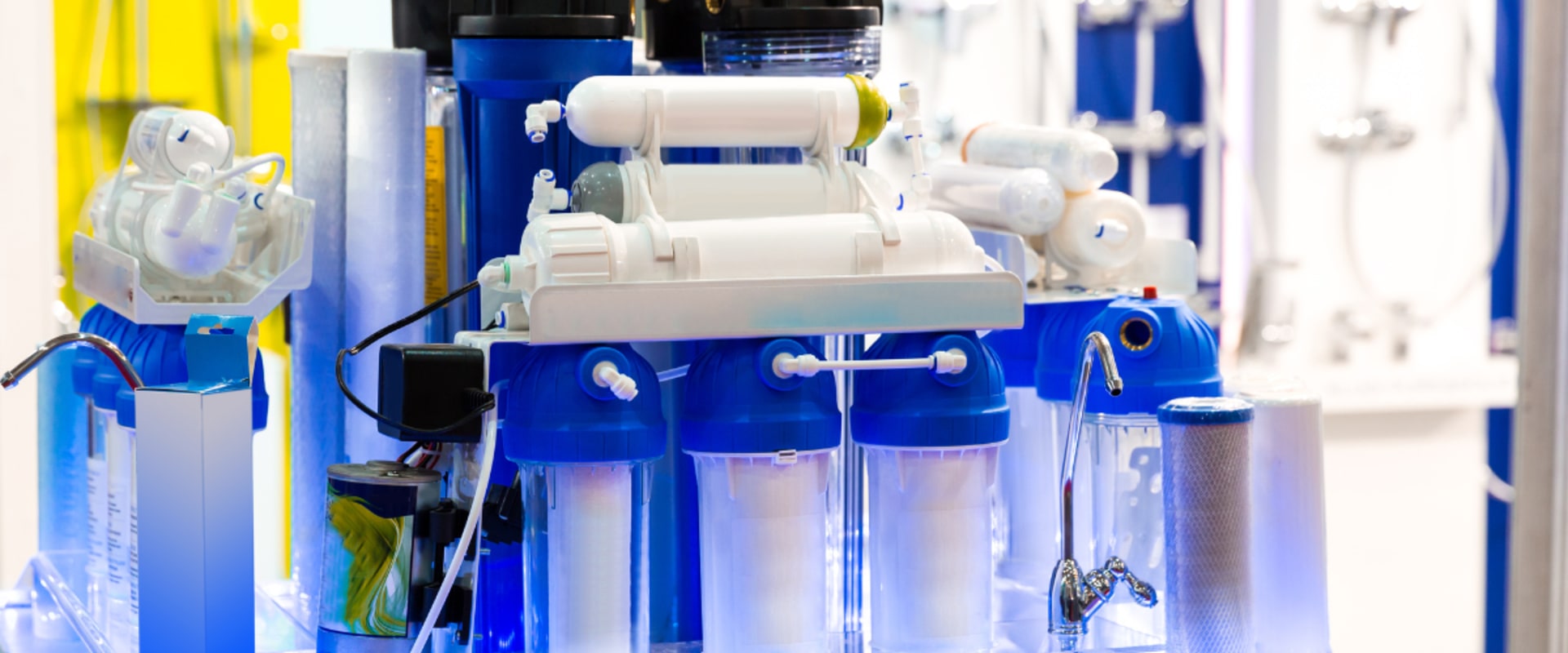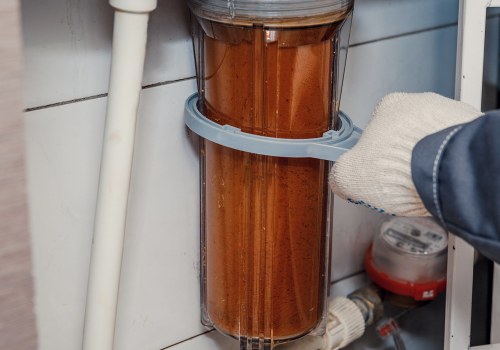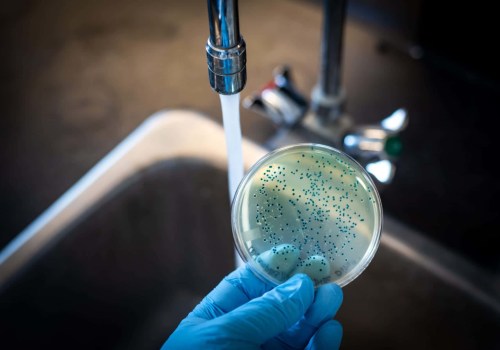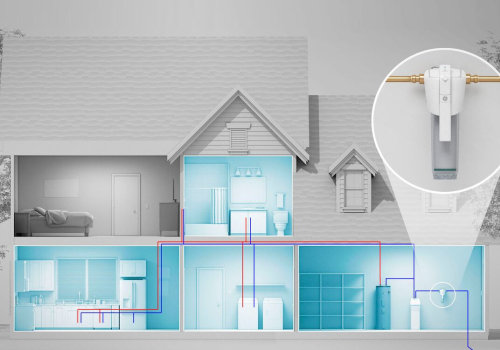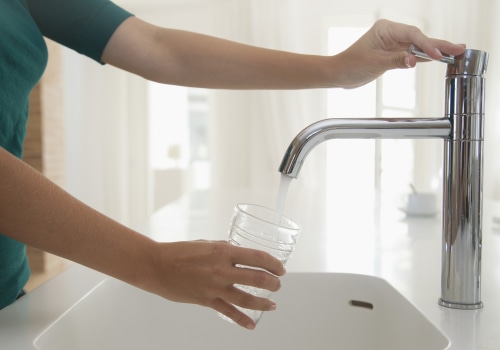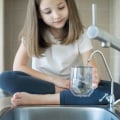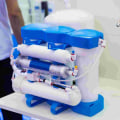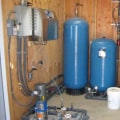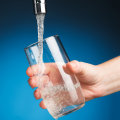Crystal Clear Choices: The Ultimate Handbook for Selecting Your Water Filtration System
Are you tired of guessing which water filter is right for you? Look no further.
This comprehensive guide will walk you through choosing the perfect water filter.
Assess your water quality needs, understand different types of filters, evaluate performance and lifespan, consider additional features and technologies, determine installation and maintenance requirements, compare pricing and long-term costs, and read reviews from other users.
By the end of this article, you'll have all the knowledge to make an informed decision.
Key Takeaways
• Optimal purification throughout the lifespan is essential in a water filter.
• Regular filter replacement and maintenance are essential for optimal performance.
• Research and compare different water filters for advanced features and technologies.
• Consider the pricing and long-term costs, including upfront costs, ongoing expenses, and availability of replacement filters.
Assess Your Water Quality Needs
To assess your water quality needs, you'll want to consider factors such as the source of your water and any specific contaminants that may be present.
Water contamination can come from various sources, including industrial waste, agricultural runoff, or even natural minerals in the ground.
Identifying the specific contaminants in your water is crucial for selecting the right water filter. Several water testing options help you determine what is in your water.
Home testing kits are convenient and provide quick results for common contaminants like lead, chlorine, and bacteria. If you require a more comprehensive analysis, professional laboratory tests can detect a broader range of pollutants, such as pesticides and heavy metals.
Understanding the composition of your water will allow you to make an informed decision when choosing a suitable filtration system.
Understand Different Types of Water Filters
When it comes to choosing the right water filter for your needs, there are several options available.
Pitchers, faucets, countertops, and under-sink filters have unique features and benefits.
Pitcher filters are easy and portable, while faucet filters provide instant access to filtered water directly from your tap.
Countertop filters offer larger capacity and longer filter life, while under-sink filters provide seamless integration into your plumbing system for convenient filtration.
Pitcher Filters
You'll find that pitcher filters are a convenient and affordable option for improving the quality of your drinking water. These filters come in various designs, but they all work on the same principle – water is poured into the top compartment, passes through a filter cartridge, and then collects in the bottom reservoir, ready to be poured out.
Here are some benefits of using pitcher filters:
• Easy to use: Fill, wait for the water to pass through the filter, and enjoy clean drinking water.
• Portable: Pitcher filters are compact and efficiently carried wherever you go.
• Ideal for small households or individuals who want filtered water on the go.
• Great for camping trips or vacations where access to safe drinking water may be limited.
However, there are also some drawbacks to consider:
• Limited capacity: Pitcher filters typically hold 6-10 cups of water at a time, so frequent refilling may be necessary.
• Slower filtration rate compared to other types of filters: It can take several minutes for the water to pass through the filter cartridge.
Overall, pitcher filters offer convenience and affordability while providing cleaner, better-tasting drinking water.
Faucet Filters
Faucet filters are a popular option for improving tap water quality. These filters effectively remove impurities and contaminants, providing cleaner and safer drinking water.
Regarding faucet filter effectiveness, it is essential to consider the specific contaminants you want to target. Different filters have different capabilities, so choose one that meets your needs.
Installation is typically straightforward and can be done by following simple instructions provided by the manufacturer. Most faucet filters attach directly to your existing faucet, allowing easy access to filtered water whenever needed.
Regular maintenance, such as replacing filter cartridges, ensures continued effectiveness.
Overall, faucet filters offer a convenient and reliable solution for improving tap water quality at home.
Countertop Filters
To get cleaner and safer drinking water, consider using countertop filters. These filters effectively remove impurities and contaminants, making them popular as an affordable and convenient water filtration solution.
One of the main benefits of countertop filters is their ease of installation and use. They can be easily attached to your existing faucet without the need for any additional plumbing or tools. Plus, they come with user-friendly instructions for simple filter cartridge replacement.
Countertop filters are known for removing many impurities from your drinking water. They effectively reduce chlorine, lead, mercury, pesticides, and other harmful substances commonly found in tap water. This ensures you access clean and healthy drinking water from your kitchen sink.
In addition to removing impurities, countertop filters also improve the taste and odor of your drinking water. These filters provide refreshing and great-tasting water by eliminating chlorine and other chemicals responsible for unpleasant tastes and smells.
Another advantage of countertop filters is their longevity. Most models have a long lifespan before requiring a filter replacement, so you won't have to worry about constantly buying new cartridges.
When choosing a countertop filter, consider factors such as filtration capacity, filter lifespan, certification by independent organizations like NSF or WQA, and customer reviews.
Under-Sink Filters
Installing an under-sink filter is a convenient way to ensure clean and impurity-free drinking water. This type of filter is installed directly beneath your sink, connecting to your main water supply.
To start the installation process, you'll need to shut off the water supply, disconnect the pipes, and mount the filter unit in a suitable location. Next, connect the filter to the main water line using compression fittings or quick-connect adapters.
Once installed, it's essential to maintain your under-sink filter regularly. This includes changing the filter cartridge as the manufacturer recommends (typically every 6-12 months), checking for leaks or malfunctions, and cleaning any sediment or debris that may accumulate over time.
Consider Filter Performance and Lifespan
When considering filter performance and lifespan, it's important to assess two key factors: filter capacity and filter replacement frequency.
Filter capacity refers to the amount of water a filter can effectively process before it needs to be replaced or cleaned. This is crucial in determining the suitability of a filter for your specific needs and usage patterns.
Additionally, understanding the recommended filter replacement frequency is essential for maintaining optimal filtration efficiency and ensuring the delivery of clean, safe water.
Filter Capacity
You should consider the filter capacity when choosing a water filter. The filter capacity refers to the amount of water that a filter can effectively purify before it needs to be replaced. It is an essential factor to consider because it determines how long the filter will last and how effective it will be in removing contaminants from your drinking water.
Here are three key points to keep in mind regarding filter capacity:
1. Filter Lifespan: The lifespan of a filter depends on its capacity. A higher capacity means the filter will last longer before needing replacement, saving you time and money.
2. Filter Effectiveness: The effectiveness of a water filter decreases as it reaches its maximum capacity. Therefore, choosing a filter with sufficient capability is crucial to ensure optimal purification throughout its lifespan.
3. Maintenance Frequency: Filters with larger capacities require less frequent maintenance than filters with smaller spans, making them more convenient for busy households.
Filter Replacement Frequency
The filter's lifespan and effectiveness decrease as it nears its maximum capacity, so it's essential to consider the frequency of filter replacement. Regular maintenance ensures that your water filter provides clean and safe drinking water.
The lifespan of a filter can vary depending on various factors, such as the quality of water being filtered, the type of filter used, and the level of usage. Generally, it is recommended to replace filters every 3-6 months or after filtering a certain number of gallons of water. However, checking the manufacturer's guidelines for specific instructions regarding your filter model is essential.
Proper maintenance also involves regular cleaning and sanitizing to prevent buildup and maintain optimal performance. By staying proactive with filter replacement and maintenance, you can ensure your water stays fresh and free from contaminants.
Evaluate Additional Features and Technologies
Consider researching and comparing the additional features and technologies available in different water filters to make an informed choice. When evaluating water filters, looking beyond their basic filtration capabilities is essential. Many filters offer additional features that can enhance the quality of your drinking water.
Here are some advanced technologies and features to consider:
• UV Sterilization: Some filters use ultraviolet light to kill bacteria, viruses, and other microorganisms that may be present in the water.
• Activated Carbon Filters: These filters use activated carbon to remove impurities such as chlorine, chemicals, and odors from the water.
• Smart Technology: Certain filters come with intelligent technology that allows you to monitor the filter's performance, track usage, and receive alerts for filter replacement.
Determine the Installation and Maintenance Requirements
When installing a water filter, you have two options: DIY or professional.
DIY installation lets you set up the filter independently, saving money and time. However, if you need more confidence in your plumbing skills or your filter requires complex installation, opting for professional installation to ensure the correct setup and proper functioning is best.
Regardless of the method chosen, regular filter replacement and maintenance are essential to maintain optimal performance and ensure clean drinking water.
DIY Installation vs. Professional Installation
Are you deciding between DIY installation and professional installation? Let's explore the benefits of each option.
DIY Benefits
• Cost savings: Installing the water filter can save on labor costs.
• Flexibility: DIY installation allows you to work at your own pace and schedule.
• Learning experience: Installing a water filter alone can be rewarding and educational.
• Customization: You have complete control over the placement and configuration of the filter system.
Professional Advantages
• Expertise: Professionals have extensive knowledge and experience in water filter installation.
• Efficiency: Professional installers can complete the job quickly and accurately, ensuring optimal performance.
• Warranty coverage: Many manufacturers require professional installation for their warranty to be valid.
• Peace of mind: Hiring professionals gives you confidence that the installation is done correctly, avoiding potential issues down the line.
Filter Replacement and Maintenance
Maintaining and replacing the filter regularly is essential for optimal performance.
Common filter problems can include clogging, reduced water flow, and decreased effectiveness in removing contaminants.
Check for visible debris or sediment blocking the filter to troubleshoot these issues. If present, clean or replace the filter accordingly.
Additionally, ensure that the filter is installed correctly and securely to prevent leaks or bypassing of unfiltered water.
Regular maintenance offers numerous benefits, such as extending the filter's lifespan and ensuring consistent water quality.
Following a regular maintenance schedule can maximize your filter's efficiency and prolong its durability.
Consider your product manual for specific maintenance instructions tailored to your filtration system.
Compare Pricing and Long-Term Costs
When considering a water filter for your home, evaluating the initial investment and filter replacement costs is essential.
The initial investment refers to the upfront cost of purchasing and installing the water filter system. This cost can vary depending on brand, model, and features.
Additionally, ongoing expenses should be considered. These include the cost of replacing filters regularly to ensure optimal performance and clean water.
Initial Investment
The upfront cost is an essential factor to consider when choosing a water filter. The initial investment plays a crucial role in budget planning.
Water filters come in various types, each with its price range. Evaluating your needs and comparing them with the available options is essential.
Countertop filters are more affordable, ranging from $50 to $200. Under-sink filters may have a higher initial cost, typically between $100 and $500, but they offer better filtration capabilities and convenience in the long run.
Whole-house filters require a more significant upfront investment of around $1,000 to $3,000 but provide clean water for the entire household.
Filter Replacement Costs
Now that you understand the initial investment required for a water filter let's delve into another important aspect: filter replacement costs. Considering the upfront cost and the long-term expenses associated with maintaining your water filter system is crucial.
When choosing a water filter, it's essential to prioritize filter quality and effectiveness. Here are three key factors to consider:
• Filter Lifespan: Determine how often filters need replacing and calculate the annual cost based on this information.
• Filter Efficiency: Look for filters certified by reputable organizations like NSF or WQA to ensure they effectively remove contaminants.
• Filter Compatibility: Check if the replacement filters are available and reasonably priced in your area.
Read Reviews and User Experiences
Before deciding, it's essential to read reviews and user experiences when choosing the perfect water filter. Reading reviews can provide valuable insights into the performance and reliability of different filters. It allows you to gauge the overall satisfaction level of other users, helping you make an informed choice.
When analyzing reviews, consider two key factors: readability and brand reputation. Readability refers to how easy it is for users to understand and follow the instructions provided with the filter. Look for filters that have clear instructions and are user-friendly.
Brand reputation is another crucial aspect to consider. A reputable brand with positive customer feedback indicates a higher chance of getting a reliable water filter that meets your needs.
Frequently Asked Questions
How does the water filter affect the taste of the water?
The water filter directly affects the taste of the water by improving its quality. The filter's effectiveness determines how much it can remove impurities, resulting in better-tasting water for you to enjoy.
Can a water filter remove all types of contaminants?
Water filters vary in removal efficiency for different contaminants. Some methods, like activated carbon and reverse osmosis, can remove many contaminants, including bacteria, chemicals, and heavy metals. However, no filter can draw all types of pollutants ultimately.
Are there any health risks associated with using a water filter?
Water filter safety is of utmost importance, but rest assured, the health risks associated with using a water filter are highly exaggerated. You can enjoy clean and safe drinking water with proper maintenance and regular filter replacements.
What is the average lifespan of a water filter cartridge?0
The average lifespan of a water filter cartridge depends on usage and water quality. Most cartridges last between 2-6 months. Following the manufacturer's replacement schedule is recommended to ensure optimal performance.
Can a water filter be installed on a faucet with a pull-out sprayer feature?
A water filter with a pull-out sprayer feature can be installed on a faucet. The installation involves attaching the filter to the faucet's aerator thread and ensuring proper compatibility for uninterrupted use.
Earthwise Water Filters Phoenix
922 N Colorado Street, Gilbert AZ 85233
(602) 878-6160
